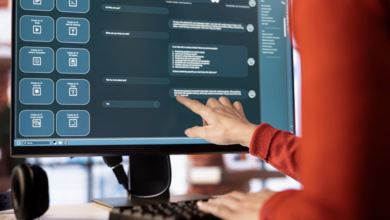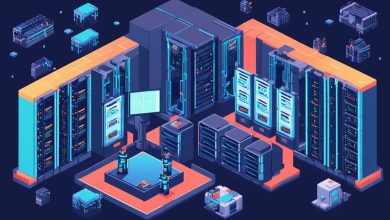
Gen Z, the first truly digital-native generation, has a unique relationship with AI: it presents both significant opportunities and challenges for enterprises. While Gen Z is adept at using digital tools and can leverage AI to boost productivity and creativity, many experience a conflict about their reliance on AI. A recent study by EduBirdie found that 36% of Gen Z employees feel guilty when using AI tools like ChatGPT at work.
To address this, organisations should cultivate a culture that views AI as a tool for enhancement, not a replacement for skills. This involves demystifying AI, highlighting its benefits, and assuring employees that AI complements their existing abilities. By fostering this environment, companies can ensure their workforce feels confident and supported in using AI, ultimately leading to increased productivity and job satisfaction.
HR departments play a key role in training, upskilling, and implementing AI across the organisation. HR and hiring teams must lead the way in adopting and integrating these solutions into the workplace.
HR’s role in AI integration
While new technologies are often seen as the responsibility of IT, HR is uniquely positioned to take the lead in guiding their adoption. In fact, HR can play a pivotal role in navigating the integration of AI by establishing clear, thoughtful guidelines on its appropriate use in the workplace.
Through well-rounded training programmes that cover both the technical functionality and ethical implications of AI, HR can equip employees with the knowledge to use these tools responsibly and effectively. This education should reinforce the idea that AI is meant to augment human abilities, not replace them, helping to alleviate any unease or hesitation around its use.
Beyond training, HR can cultivate a culture that embraces AI with openness and curiosity. This means facilitating conversations about its applications, celebrating success stories, and embedding AI into day-to-day workflows in a way that feels seamless and supportive. By normalising its use, HR can help Gen Z and other employees feel more empowered and confident in integrating AI into their roles.
Hiring for digital proficiency
As AI becomes increasingly integrated into everyday business operations, hiring managers are placing greater emphasis on candidates with strong digital and data skills. A recent HireVue study found that IT and digital proficiency will be in even higher demand over the next five years, particularly among graduates and school leavers, highlighting a growing recognition of the value of digital tools.
For HR professionals, mastering AI and automation technologies can significantly improve key functions such as recruitment, background checks, performance monitoring, and employee engagement. By automating time-consuming administrative tasks, HR teams can free up valuable time to focus on more strategic, high-impact initiatives.
That said, the integration of AI should serve to enhance, not replace, the human side of HR. While technology can streamline processes and provide data-driven insights, human judgement remains essential, especially in nuanced areas like workplace culture and employee relationships. For example, AI can efficiently handle initial candidate screenings, but the final decisions should still be guided by human intuition and empathy.
Striking the right balance between technological efficiency and human connection allows HR to stay people-focused while embracing innovation. This approach ensures AI strengthens the department’s ability to support and grow talent without losing the personal touch that defines great HR.
Continuous learning in the AI era
With AI evolving rapidly, continuous learning is no longer optional—it’s essential. As AI tools advance, so must the skills of the employees using them. HR teams are well-positioned to lead this charge by developing ongoing, flexible learning programs that keep pace with technological change. This involves consistently refreshing training materials to reflect the latest AI developments, ensuring employees stay confident and capable in their use of these tools.
But it’s not just employees who need to stay current—HR and hiring teams themselves should embrace AI and automation, rather than shy away from them. By adopting cutting-edge technologies, they can streamline operations and enhance efficiency across the organisation. With Gen Z already fluent in digital tools, leveraging AI presents a unique opportunity to empower the next generation of HR professionals.
Another key to successful AI integration is actively seeking feedback from Gen Z and other team members about their experiences with these tools. Their insights can help refine training and implementation strategies to better meet the workforce’s needs. By building a culture that listens and adapts, HR can ensure AI remains a valuable, relevant asset—one that addresses challenges and drives continuous improvement.
Ultimately, HR has a pivotal role in guiding employees through the AI era. By investing in strong training initiatives and fostering a feedback-driven environment, HR can prepare organisations to not only adapt to AI, but to lead with it.




